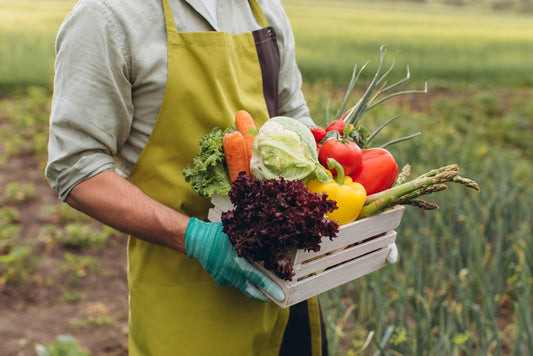Even with the best intentions, eating the proper amount of fruits and vegetables every day can become daunting. Trying to stay on budget and eat seasonal picks, which are usually cheap and plentiful, can leave some with minimal options for their yearning taste buds. Having cheap and easy options is a great way to keep up with your healthy eating habits. If you can’t find your favorites fresh, strolling down the frozen food isles will be sure to leave you satisfied.

The Department of Food Science and Technology and Analytical Lab at UC-Davis conducted a study to compare the vitamin retention of fruits and vegetables from refrigerated and frozen storage. Commodities like corn, carrots, broccoli, peas, strawberries, and blueberries were evaluated for levels of ascorbic acid (vitamin C), riboflavin (vitamin B2), alpha-tocopherol (vitamin E), and beta-carotene (vitamin A). Frozen broccoli and peas were higher in vitamin B2 content, while fresh stored peas, carrots, and corn showed a significant decrease in vitamin A compared to frozen peas. Overall, the vitamin content of the frozen foods was comparable, and occasionally higher, than fresh stored options.
Ideally, produce is consumed right after harvest and at peak ripeness to get the most health benefits and nutrients. However, fresh produce often arrives to consumers several days or weeks after harvest which can cause a substantial breakdown in essential nutrients we expect to get. Frozen options can be more nutritious because they are harvested from the source at peak times, then immediately processed and frozen.
The length of time that fruits and vegetables are stored has some impact on the nutritional value over time. A Unilever Research study found nutrient levels of frozen peas and broccoli, after 12 months of frozen storage, comparable to that of the same market purchased, fresh vegetables and was actually higher than peas stored in the home after several days.

Choosing frozen produce is a great way to bulk up your intake daily. Scouting the fresh produce section is still a good option for your favorite in-season options because it probably hasn’t been stored as long. But make sure you are also getting top quality, nutrient-dense frozen foods too.

Whether you choose fresh or frozen, look for the Certified Prevegenics label to guarantee you are getting the most nutrient-packed foods available as the best fertilizers for fruits and vegetables and the best fertilizer for plant growth. Produce harvested from Prevegenics all purpose plant fertilizer grown plants are healthier and contain more essential nutrients overall. Only the healthiest plants can produce the healthiest foods.



